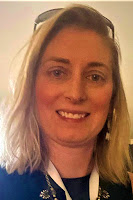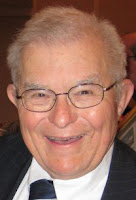An Arkansas publisher and her weekly newspaper, which revealed school officials’ cover-up of sexual-abuse allegations by students in the face of court challenges and harsh criticism by the officials, are the winners of the 2022 Tom and Pat Gish Award for courage, integrity and tenacity in rural journalism from the
Institute for Rural Journalism and Community Issues, publisher of The Rural Blog.
 |
| Publisher Ellen Kreth |
Ellen Kreth and the
Madison County Record have long been standouts in Arkansas journalism, and leaders in the battle for freedom of information in the state. Their FOI experiences served them well in their battle with the
Huntsville School District, which tried to conceal sexual abuse by members of the Huntsville High School Junior High boys’ basketball team against some of their teammates over two basketball seasons.
The Record learned of the case from parents of the victims, who approached the newspaper to make sure the allegations weren’t swept under the rug and school officials were held accountable. The paper didn’t name any students involved, but did report that the school board reduced or rejected the recommended punishment for the violators. It focused on how officials handled the allegations. It reported the district’s failure to immediately report the allegations, as required by law, and multiple open-meetings violations of the Arkansas Freedom of Information Act.
The newspaper’s reporting prompted an investigation by the county sheriff; special open-meetings training for the school board, which didn’t do it in the time required; a lawsuit by a parent alleging violations of Title IX of the Education Amendments of 1972, which ban sex-based discrimination in any school that gets federal funding; the board’s admission of liability in that suit; and the electoral defeat in May of three of the four board members who sought re-election.
 |
| Madison County (Wikipedia map) |
The Record also reported that on election night, five days after the board granted the school superintendent’s request to become director of compliance and personnel, the sheriff’s office found her hidden under a bridge with the unopposed board member in his truck, claiming to be “star-gazing” on the stormy night.
“The school district fought us each step, publicly criticizing our editorial decisions and the credibility of our reporting,” Kreth told the Institute for Rural Journalism. “The school board claimed ignorance for never having previously handled a Title IX investigation. It failed to provide notice of meetings, claiming a newspaper should not cover student discipline. Based upon our reporting, a parent sued the district for the open-meetings violations and won.” The district asked for a gag order, and the paper hired legal counsel to intervene in the case on that issue and won. That allowed parties to the case, “including victims, to continue to speak to us, helping ensure accuracy in every article,” Kreth wrote.
 |
| Gen. Mgr. Shannon Hahn |
The newspaper's work, which is at
https://www.mcrecordonline.com/Content/Default/Title-IX/-3/111, was done by Kreth, General Manager Shannon Hahn and Celia Kreth, the publisher’s younger daughter, now a senior at the
University of Pennsylvania. Ellen Kreth said the 4,000-circulation paper with a staff of five turned down help from larger news organizations because they had promised anonymity to several victims and families and wanted to ensure the confidentiality was maintained.
Kreth started out as a journalist and became a lawyer, but got back into journalism in 2002 when she inherited the newspaper from her grandmother. She said that her knowledge of freedom-of-information law prevented officials and their lawyers from intimidating her, and that the paper’s use of the laws has made readers more aware of them, to the point that they come in asking how to file an open-records request.
 |
| Reporter Celia Kreth |
“At a time when newspapers need to remind the public of their value to local democracy, as independent watchdogs of local officials, Ellen Kreth and the Madison County Record are an example to the nation,” said Al Cross, director of the Institute for Rural Journalism and extension professor of journalism at the
University of Kentucky.
The Tom and Pat Gish Award is named for the couple who published
The Mountain Eagle in Whitesburg, Ky., weekly for more than 50 years and repeatedly demonstrated courage, tenacity and integrity through advertiser boycotts, business competition, declining population, personal attacks, and even the burning of their office by a local policeman who state police believe was paid by coal companies.
Author and journalist Bill Bishop of LaGrange, Texas, who worked for the Gishes and is a member of the award selection committee, said of the winners’ work, “I can't imagine a harder issue to pursue in a community. And the open-records fight is straight out of early Tom and Pat.”
The Gishes, who died in 2008 and 2014, respectively, were the first winners of the award, in 2005. The other winners, in chronological order, have been the Ezzell family of
The Canadian (Texas)
Record; Stanley Dearman (former publisher, now deceased) and Jim Prince (publisher),
The Neshoba Democrat, Philadelphia, Miss.; Samantha Swindler of Portland, Oregon, for her work at the
Jacksonville (Texas)
Daily Progress and the daily
Times-Tribune of Corbin, Ky.; Stanley Nelson and the
Concordia Sentinel of Ferriday, La.; Jonathan and Susan Austin, publishers of the now-defunct Yancey County News in Burnsville, N.C.; the late Landon Wills of the
McLean County News in Calhoun, Ky.; the Trapp family of the
Rio Grande Sun in Española, N.M.; Ivan Foley of the
Platte County Landmark in Platte City, Mo.; the Cullen family of the
Storm Lake (Iowa)
Times; Les Zaitz of the
Malheur Enterprise in Vale, Oregon; Ken Ward Jr., then of the
Charleston Gazette-Mail and now of
Mountain State Spotlight, along with his mentor, the late Paul J. Nyden of the Charleston Gazette and Howard Berkes of
NPR; the late Tim Crews, editor-publisher of the
Sacramento Valley Mirror in Willows, Calif.; and the Thompson-High family of
The News Reporter in Whiteville, N.C.
The Gish Award will be presented Nov. 3 at the annual Al Smith Awards Dinner at the Embassy Suites Lexington on Newtown Pike near Interstate 64/75. The keynote speaker will be Renee Shaw, public-affairs director for
Kentucky Educational Television.
The annual dinner also honors recipients of the Al Smith Award for public service through community journalism by Kentuckians, which the institute presents with the Bluegrass Chapter of the
Society of Professional Journalists. The 2022 winners of the Smith Award are Chris Evans and Allison Mick-Evans of
The Crittenden Press, a small weekly in West Kentucky that has punched above its weight and persevered for almost 30 years in the face of increasing challenges, most recently a city water crisis in which it has been an information lifeline.
Dinner tickets for non-SPJ members are $125 each; table sponsorships are $1,250. For more information, contact Al Cross at
al.cross@uky.edu.











